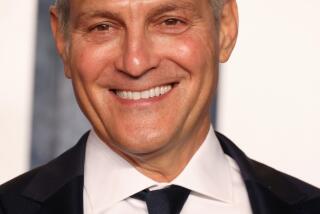Hollywood agencies William Morris, Endeavor merge
Even before the talent agencies William Morris and Endeavor formally approved a merger Monday afternoon, several of the agents of those firms were already involved in high-stakes negotiations -- to get out.
Tom Strickler, one of Endeavor’s four founders, sent out an e-mail at 6 a.m. announcing that he had submitted his resignation. Two top William Morris agents who previously worked at Endeavor are working on an exit strategy, other agency executives say.
William Morris’ David Lonner, who represents such A-list talent as TV producer J.J. Abrams, and colleague Steve Rabineau were being courted by rival United Talent Agency, according to people familiar with the talks. Mark Itkin, who has built William Morris’ reality TV business into a juggernaut, was also in play. He declined to comment.
Those agents, responsible for some of William Morris’ top clients, were not offered board seats in the newly constituted agency.
The departures could be the tip of the iceberg, as the new goliath, called William Morris Endeavor Entertainment, combines operations and eliminates staff. The merged firm would employ more than 1,000 people, about one-third as agents. Some speculate that as many as 100 agents could lose their jobs, although representatives of William Morris and Endeavor say such talk is premature.
The 20-member William Morris board and the 28 Endeavor partners met at the same time Monday -- 2 p.m. -- to vote on the merger, which had been in discussions since the fall. The vote was largely a formality, as executives had already resolved questions of governance and valuation before the deal could be closed, according to a person close to the talks. A new entity will be created, with no cash changing hands, the person said.
William Morris Chairman Jim Wiatt will retain that title at WME Entertainment. Endeavor founder Ari Emanuel and managing partner Patrick Whitesell will share chief executive duties with William Morris President Dave Wirtschafter. They will be joined on the nine-member board by John Fogleman, Peter Grosslight and Jennifer Rudolph Walsh from William Morris and Rick Rosen and Adam Venit from Endeavor.
The merger, which had been the subject of on-and-off discussions for years, was motivated by the new economic realities in Hollywood. Fewer films and TV dramas and comedies are being made, while at the same time studios have been squeezing the salaries paid to talent. The agencies, which depend upon commissions from clients and TV shows for income, are battling one another over a shrinking pool of top actors, writers and directors who can still command large fees.
William Morris and Endeavor hope that by combining they can forge a stronger force as each side brings to the business something the other doesn’t possess. Endeavor is strong in scripted TV comedies and dramas, where William Morris has lost ground. But William Morris has a thriving music department, which Endeavor lacks. Like all Hollywood agencies, both are trying to figure out what roles agencies can play in the new world of digital entertainment.
Navigating big egos and striking the deal to combine the two agencies may have proved to be the easy part. At the center will be Emanuel, who is the role model for the hyperkinetic Ari Gold character in the HBO series “Entourage,” and whose brother, Rahm Emanuel, is President Obama’s chief of staff.
The outcome of the merger will be more clear over the next 18 months, as WME’s managers seek to meld the different cultures of William Morris and Endeavor -- the former a century-old agency with a reputation as staid, the latter a 14-year-old firm that still enjoys the image of the cool upstart.
--
Times staff writer Meg James contributed to this report.
More to Read
The biggest entertainment stories
Get our big stories about Hollywood, film, television, music, arts, culture and more right in your inbox as soon as they publish.
You may occasionally receive promotional content from the Los Angeles Times.










